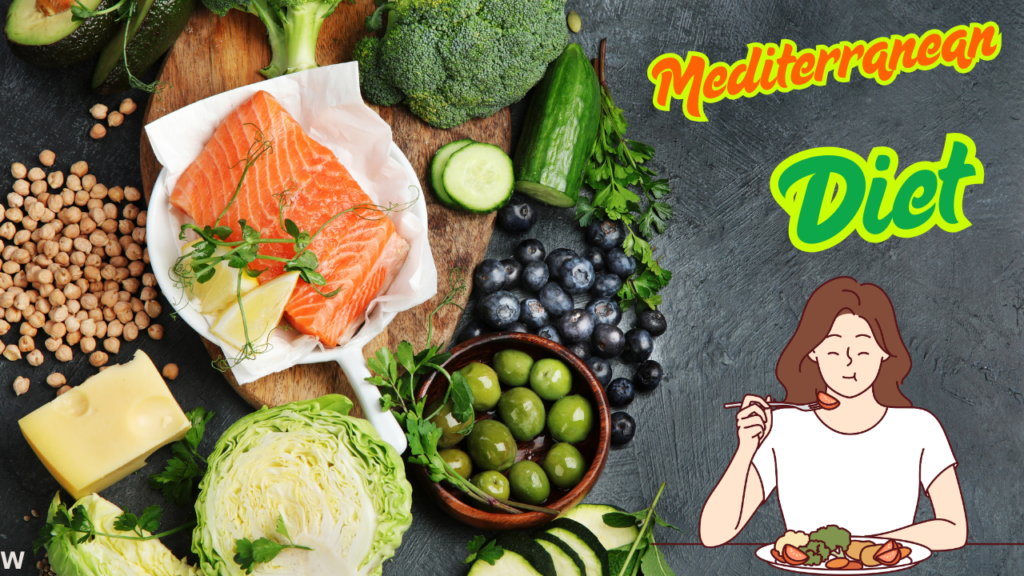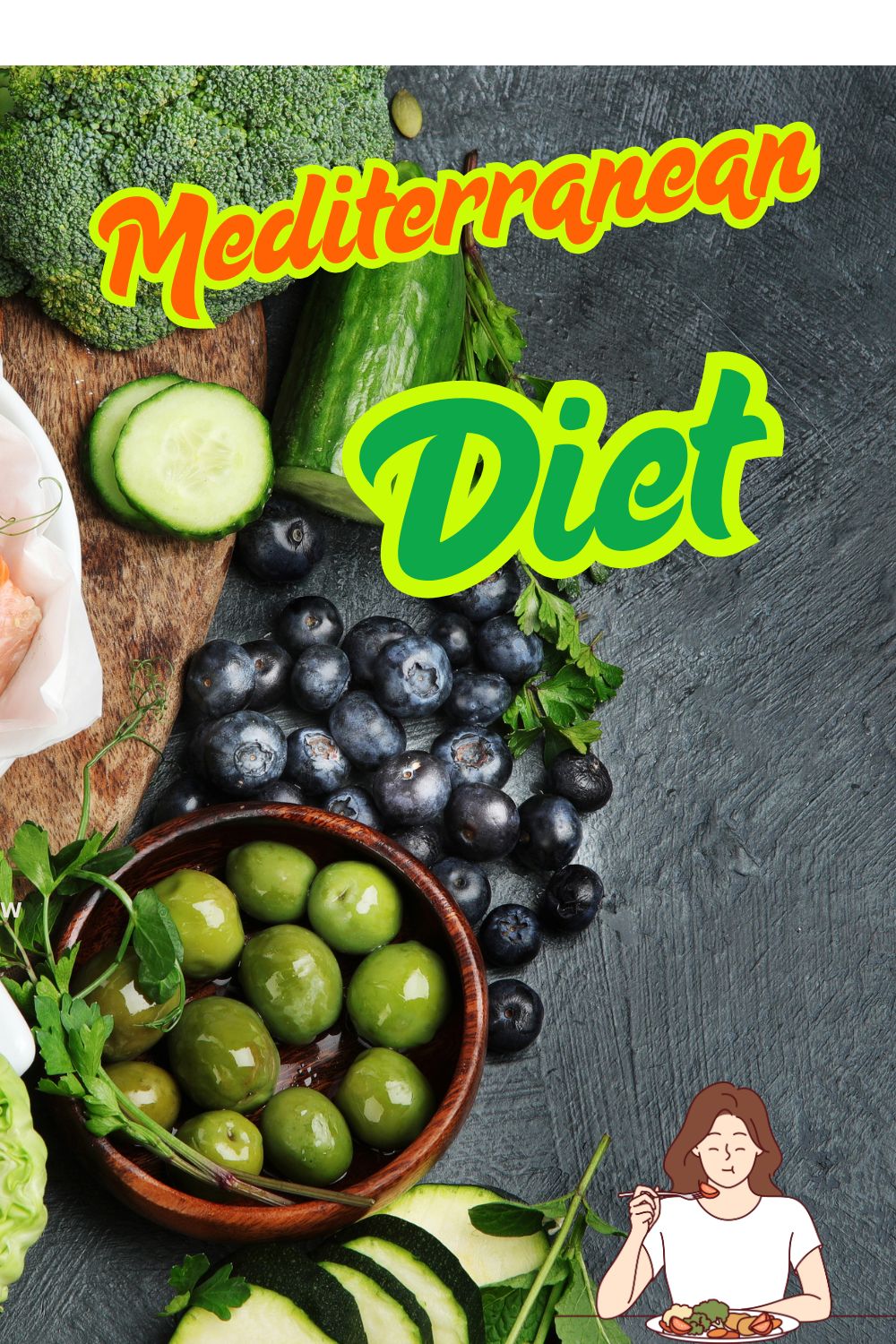
When most people think of losing weight, they think of restriction—cutting carbs, skipping meals, counting calories. But what if we told you there’s a way to eat more and still weigh less? That’s exactly what the Mediterranean diet offers.
Packed with delicious foods, generous portions, and heart-healthy fats, the Mediterranean diet is more than a trend—it’s a lifestyle rooted in centuries of tradition. And the best part? It helps burn fat, improve metabolism, and reduce cravings without starving yourself.
In this article, you’ll discover how the Mediterranean diet lets you eat more while shedding pounds, the science behind its weight-loss magic, and how to start today.
The waiting is over! You can shed fat off as quickly as you want…
What Is the Mediterranean Diet?
The Mediterranean diet is inspired by the eating habits of people in Greece, southern Italy, Spain, and other countries bordering the Mediterranean Sea. Unlike restrictive diets, this one emphasizes abundance—a wide variety of nutrient-dense, whole foods.
Core Mediterranean Foods:
- Fruits and vegetables
- Whole grains
- Legumes (chickpeas, beans, lentils)
- Nuts and seeds
- Healthy fats like olive oil
- Fish and seafood
- Moderate wine (optional)
- Minimal processed foods and sugar
But how can you eat all this and still lose weight? Let’s break it down.
The Science: Why You Eat More but Weigh Less
1. High Volume, Low-Calorie Foods
Vegetables, legumes, and fruits are naturally low in calories but high in volume, meaning they fill you up without packing on pounds. Foods like spinach, zucchini, tomatoes, and beans allow you to eat larger portions and still stay in a calorie deficit.
2. Healthy Fats Keep You Satisfied
Unlike low-fat diets that leave you hungry, the Mediterranean diet is rich in monounsaturated fats from olive oil, nuts, and avocados. These fats help:
- Curb sugar cravings
- Increase satiety
- Stabilize blood sugar levels
- Boost metabolism
Fat doesn’t make you fat—excess processed foods and sugar do.
3. Protein from Fish and Legumes Builds Muscle
Fish like salmon, sardines, and tuna are rich in omega-3 fatty acids and lean protein, which:
- Promotes fat loss
- Preserves lean muscle mass
- Keeps you fuller for longer
Legumes also add plant-based protein, perfect for vegans and vegetarians following the Mediterranean approach.
4. Low Glycemic Index = Steady Energy
Unlike fast carbs that spike and crash blood sugar, Mediterranean staples like quinoa, oats, and lentils have a low glycemic index, giving you:
- Long-lasting energy
- Fewer cravings
- Better fat burning throughout the day
Mediterranean Diet: Eat More with These Smart Choices
Here’s how to enjoy satisfying meals without the guilt:
Breakfast:
- Greek yogurt with honey, berries, and walnuts
- Avocado on whole grain toast with poached egg
- Oatmeal topped with figs, almonds, and cinnamon
Lunch:
- Chickpea and cucumber salad with olive oil and lemon
- Grilled vegetable wrap with hummus
- Quinoa bowl with roasted red peppers, feta, and olives
Dinner:
- Baked salmon with sautéed spinach and lentils
- Stuffed bell peppers with brown rice and herbs
- Mediterranean chicken with artichokes and tomatoes
Snacks:
- A handful of almonds
- Carrot sticks with tzatziki
- Sliced apple with tahini
These meals are full of flavor, fiber, and good fats—the trifecta for eating more and weighing less.
Eat More, Weigh Less: Real Lifestyle Habits that Work
1. Portion Control Without Counting Calories
In the Mediterranean diet, people eat until satisfied—not stuffed. You can enjoy hearty meals, but it’s about quality over quantity. One tip? Use smaller plates, eat slowly, and pause between bites.
2. Cook with Olive Oil Instead of Butter
Switching to extra virgin olive oil adds healthy fat and rich flavor without processed chemicals. Use it to:
- Drizzle over salads
- Cook vegetables
- Marinate meats and fish
Olive oil also contains oleocanthal, a compound with natural fat-burning and anti-inflammatory properties.
3. Make Vegetables the Star of the Plate
In Mediterranean culture, vegetables aren’t just a side dish—they’re the main event. Try:
- Ratatouille
- Grilled zucchini lasagna
- Eggplant stew with herbs
The more plant-based your plate is, the easier it is to shed pounds while feeling satisfied.
Why the Mediterranean Diet Works Long-Term
Most diets fail because they’re hard to maintain. The Mediterranean diet works because:
- It’s flexible, not rigid
- You enjoy variety, not repetition
- It promotes real food, not deprivation
- It naturally reduces processed junk
Plus, it aligns with your body’s hunger and fullness cues—no need for extreme willpower.
Research-Proven Weight Loss Benefits
The science backs it up. Numerous studies have shown that the Mediterranean diet leads to sustainable weight loss and overall health improvement.
A few findings:
- New England Journal of Medicine (2013): Participants on a Mediterranean diet lost more weight and had fewer cardiovascular events than those on a low-fat diet.
- Diabetes Care (2009): Found improved insulin sensitivity and fat loss with Mediterranean eating.
- British Medical Journal (BMJ 2016): Showed reduced waist circumference and body mass index (BMI) with long-term adherence.
Mediterranean Diet Weight Loss Tips You Won’t Hear at the Doctor’s Office
Here are some lesser-known strategies to maximize fat loss while enjoying more food:
🟢 Don’t Fear Fat
Eat olives, nuts, avocado, and fatty fish. These help regulate hunger hormones.
🟢 Skip Packaged “Health” Foods
Granola bars and flavored yogurts are often packed with hidden sugars. Stick to whole, single-ingredient foods.
🟢 Hydrate Like a Mediterranean
Start your day with a glass of water and sip herbal teas throughout. Dehydration can mimic hunger.
🟢 Eat With Others When Possible
Eating socially leads to slower, more mindful meals—and fewer calories consumed.
🟢 Use Spices Liberally
Basil, oregano, garlic, cumin, and turmeric add flavor and anti-inflammatory benefits—without extra calories.
Sample One-Day Mediterranean Fat-Burning Meal Plan
Breakfast
Chia pudding with almond milk, sliced strawberries, and crushed pistachios
Snack
A handful of raw almonds and green tea
Lunch
Grilled chicken over tabbouleh with cucumber, tomato, and parsley
Snack
Sliced cucumber and bell peppers with hummus
Dinner
Baked cod with olive oil, roasted Brussels sprouts, and a sweet potato
Optional Dessert
A square of 70% dark chocolate and a glass of red wine
Final Thoughts: Eat More, Weigh Less—Mediterranean Style
If you’re tired of diets that leave you hungry, the Mediterranean diet is a breath of fresh (and flavorful) air. You’ll eat real food, indulge in hearty meals, and still slim down without obsessing over calories.
By prioritizing nutrient-dense foods, healthy fats, lean proteins, and mindful eating habits, you can enjoy more food and achieve long-term weight loss success. It’s not just a diet—it’s a delicious way to live.






